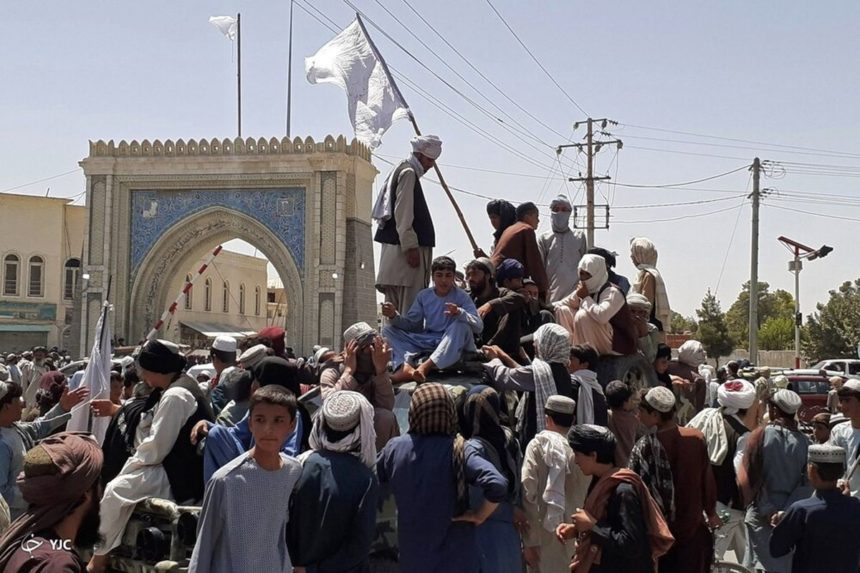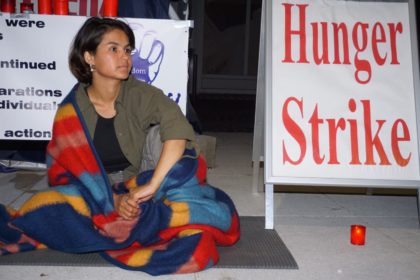21 FEB 2023
By Dr Khurram Abbas, Dr Zahid Shahab Ahmed and Muhammad Faizan Fakhar
Since the 1970s, Afghanistan has become the laboratory of political experiments for major powers and regional states leading to political and social fragmentation, continuous turmoil, and large-scale human suffering. In search of a credible, consensus-based government that may start a complicated and long-term process of state-building, the country has witnessed significant bloodshed.
The terms state-building and nation-building are often use interchangeably. Nation-building is broadly described as the creation or reconstruction of political entities that can fulfil their duties to the international community and provide basic services to their population. In more recent times, neither the US-led NATO mission nor the Taliban have been able to effectively establish such political entities. In developing political institutions the US and its partners preferred Western-style democracy by encouraging new political parties, but neglected religion, ethnic divisions, and local traditions, especially in Pashtun-dominated areas. The tragedy of this failure was that the foreign-backed democracy of the Ashraf Ghani government (2014-2021) was unable to survive beyond a few weeks once the United States announced it would begin to vacate the country in August 2021.
By contrast, the Taliban has emphasised the centrality of religion (Islam) in their government organisation, but being a Pashtun group, this calculation has led to a reliving of the mistakes of past regimes by ignoring Afghanistan’s ethnic divisions. The Taliban’s new Islamic Emirate of Afghanistan (IEA) considers Islam a uniting factor in bringing together people divided along ethnic lines. Yet, there is currently no proper ethnic representation of the various communities, including the Hazaras, Tajiks, and Uzbeks. Its efforts so far have been merely symbolic, adding ten members from ethnic groups in the interim setup. In this arrangement, the majority of influential and politically strong leaders of the ethnic groups have been side-lined.
The overwhelming dominance of Pashtun in various ministries, and the lack of proper representation of ethnicities, is crafting a similar kind of “us vs them” narrative that may lead to another wave of violence in Afghanistan. There have been some attempts at building a more inclusive government, as the appointment of Hazara Sheikh Nadar Ali Karimi Bamyani as a deputy minister in December 2022, illustrates. But the Taliban needs to do much more if they are to avoid the “tokenism” associated with such appointments and build on its legitimacy at home and abroad. This happened in the past, for example during the first IEA, when the Northern Alliance was supported by regional actors like Russia and Iran.
For the first year at least, the Taliban’s policies have mixed like oil on water with its international commitments. The peace deal signed in Doha in 2020 between the Taliban and the United States, for instance, has repeatedly been violated by the Taliban. Denying a consensus-based government by excluding ethnic communities, banning women’s’ education, and providing shelter to terrorist organisations, such as Al Qaeda and the Tehrik-e-Taliban Pakistan, are just some examples. Today, international recognition of the Taliban government is at its lowest ebb due in no small amount to the uncompromising approach of the Taliban, particularly as it concerns the conservative religious interpretation of Islamic law and posing restrictions on women’s mobility. Even their erstwhile supporters like Pakistan are hesitant to recognise the new IEA.
Currently, the Taliban regime faces many challenges, including terrorism in the shape of the expansion of Daesh (popularly known as the Islamic State of Khorasan Province IS-KP) in Afghanistan. IS-KP is a major threat to stability both inside Afghanistan and to regional security more broadly as it continues to attack government buildings and diplomatic missions. It has so far attacked the Russian and Pakistani diplomatic missions, and there is now international pressure especially from China and Pakistan, to counter terrorist groups posing threats beyond borders. Pakistan has been in communication with the Afghan Taliban to deal with its concerns regarding the Tehrik-e-Taliban Pakistan, which has been operating from inside Afghanistan and is responsible for the latest deadly attack in Pakistan.
While dealing with other challenges, such as an ongoing economic crisis, the IEA is gradually focusing on building and strengthening institutions that are central to state security, such as the Afghan police force. So far, these initial steps only include providing a new uniform for Kabul police. More focus is needed to build a counterterrorism unit that could also closely work with regional actors. Although there remain concerns on how the Taliban will be treating the Western recruited soldiers of the Afghan National Army, the IEA has provided instructions for creating a new army by involving soldiers from the old regime.
The Afghanistan society is diverse, made up of several tribes, ethnic groups, faiths, and cultures. In Afghanistan, a complex web of tribal ties, traditions, and conflicts govern daily life. Without considering the regional traditions, customs, and history, no nation and state-building endeavour in Afghanistan can be successful. In moving forward, investments in building a sustainable model of collaboration and peace with various local groups should be made, in addition to the focus on infrastructure, law enforcement organisations, and consensus-based government. To be sure, this has been an ongoing and troublesome reality for Afghanistan. While the IEA continues to claim that it seeks to create an inclusive government, there is yet little indication this will take place, as non-Pashtuns remain marginalised in the current regime. The Taliban continue to oppose de-centralisation, which is a key demand of non-Pashtun leaders
To conclude, The IEA is repeating mistakes of the past by ignoring the value of inclusiveness. State building will likely be on hold as the Taliban continues and fails to deal with ethnic, religious, and development challenges.
……………………………………………………………………………………………………….
- Dr Khurram Abbas is a Research Fellow at the Islamabad Policy Research Institute, Pakistan
- Dr Zahid Shahab Ahmed is a Senior Research Fellow at Deakin University, Australia
- Faizan Fakhar is an Assistant Research Associate at the Islamabad Policy Research Institute, Pakistan
- This article is published under a Creative Commons Licence and may be republished with attribution.






